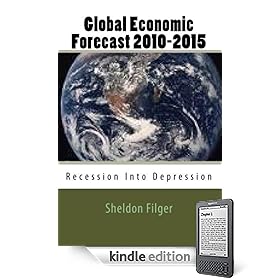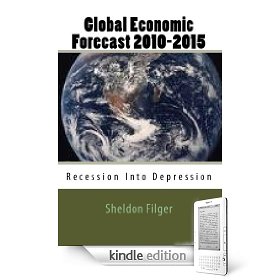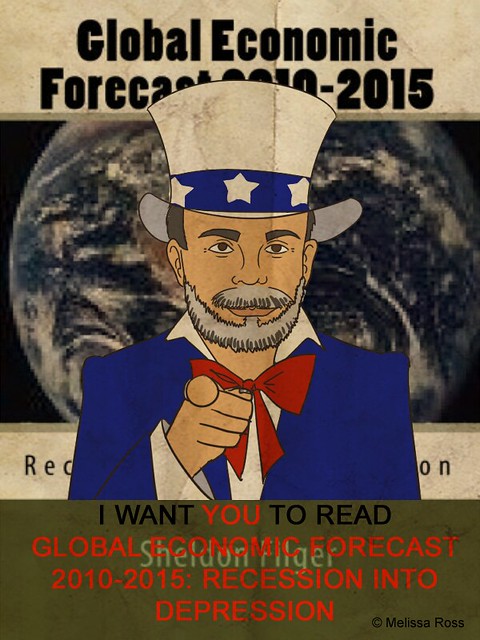Already experiencing two decades of economic stagnation and an “L” shaped recession, the Japanese economy contracted at an annual rate of 3.5 percent in Q3 of 2012. Though this is being in part attributed to export shrinkage with China owing to the ongoing offshore territorial dispute, it should be pointed out that Japan’s dismal third quarter GDP data also reveals a contraction in domestic demand.
The third largest economy in the world appears to be in recession, despite massive annual public deficits and the highest government debt to GDP correlation of any major advanced economy. The impact of Keynesian economics on Japan, after more than two decades of pump priming, is an increasingly weak and fragile economy, with future options rapidly running out owing to massive public debts and a demographic time bomb calling into question Tokyo’s long-term capacity to service its debt load.


WALL STREET KILLS--A CHILLING NOVEL ABOUT WALL STREET GREED GONE MAD
To view the official trailer YouTube video for “Wall Street Kills,” click image below:
In a world dominated by high
finance, how far would
Wall Street go in search of
profits? In Sheldon Filger’s terrifying novel about money, sex and murder, Wall Street has no limits. “Wall Street Kills” is the ultimate thriller about greed gone mad. Read “Wall Street Kills” and blow your mind.
Fitch, one of the 3 major credit ratings agencies, has lowered its rating of Japanese sovereign debt to A-plus, with a negative outlook. Japan’s gross sovereign debt is nearly 240 percent of its GDP. This is the highest correlation of public debt to GDP of any major advanced economy.
There are some factors mitigating the massive Japanese government debt bubble. It is a nation of savers, which provided the sovereign with a domestic pool of cheap credit. Japan has large foreign currency reserves, and significant overseas assts (including hundreds of billions of dollars of U.S. Treasuries). However, the demographic trend in Japan is ominous in terms of future sources of cheap credit. The two decade old “L” shape recession, fiscal and political stagnation, and the triple disasters last year involving the earthquake, tsunami and nuclear meltdown further increased already massive deficit spending by Tokyo. One must conclude, therefore, that Fitch was not being overly pessimistic in describing Japan’s future fiscal outlook as being negative.


Following in the wake of Standard & Poor’s downgrade of U.S. government debt, Moody’s Investors Service lowered its rating of Japan’s debt by a notch, now sitting at Aa3. Japan is the most indebted major advanced economy, with a government debt to GDP ratio in the range of 200 percent. In addition to the severe natural disasters that have hit Japan this year, Moody’s stated that, “over the past five years, frequent changes in administrations have prevented the government from implementing long-term economic and fiscal strategies into effective and durable policies.”
Japan is the third largest economy in the world, only recently slightly eclipsed by China, which is now number 2 in terms of GDP. Though Japan also has large external assets that in part offset its massive sovereign debt (including U.S. Treasuries!), its worsening demographic situation along with government paralysis creates a grim trajectory for its sovereign debt. The Moody’s rating downgrade, on top of S&P lowering its rating on U.S. government debt, tied in with the worsening debt crisis in Europe, points to an escalation in the global sovereign debt crisis, with economic ramifications that can only be highly negative.


Tokyo has reported its second consecutive quarter of negative GDP growth, meeting the technical definition of an economic recession. Undoubtedly, the recent earthquake, tsunami and nuclear disaster exacerbated Japan’s already weak economic performance. Nonetheless, the trends were already bleak, but clearly are weaker in the wake of the recent disasters.
In the first quarter of 2011, the Japanese economy contracted at an annual rate of 3.7 percent. The return to recession in the world’s third largest economy will undoubtedly have negative repercussions on the trajectory of the overall global economic crisis. Furthermore, Japan already has the largest ratio of public debt to GDP of any advanced economy. The borrowing requirements of Tokyo are being further expanded due to the cost of reconstruction stemming form the earthquake and tsunami. A weakened economy coinciding with a worsening public debt crisis does not portend towards a positive overall outlook for the Japanese economy.






